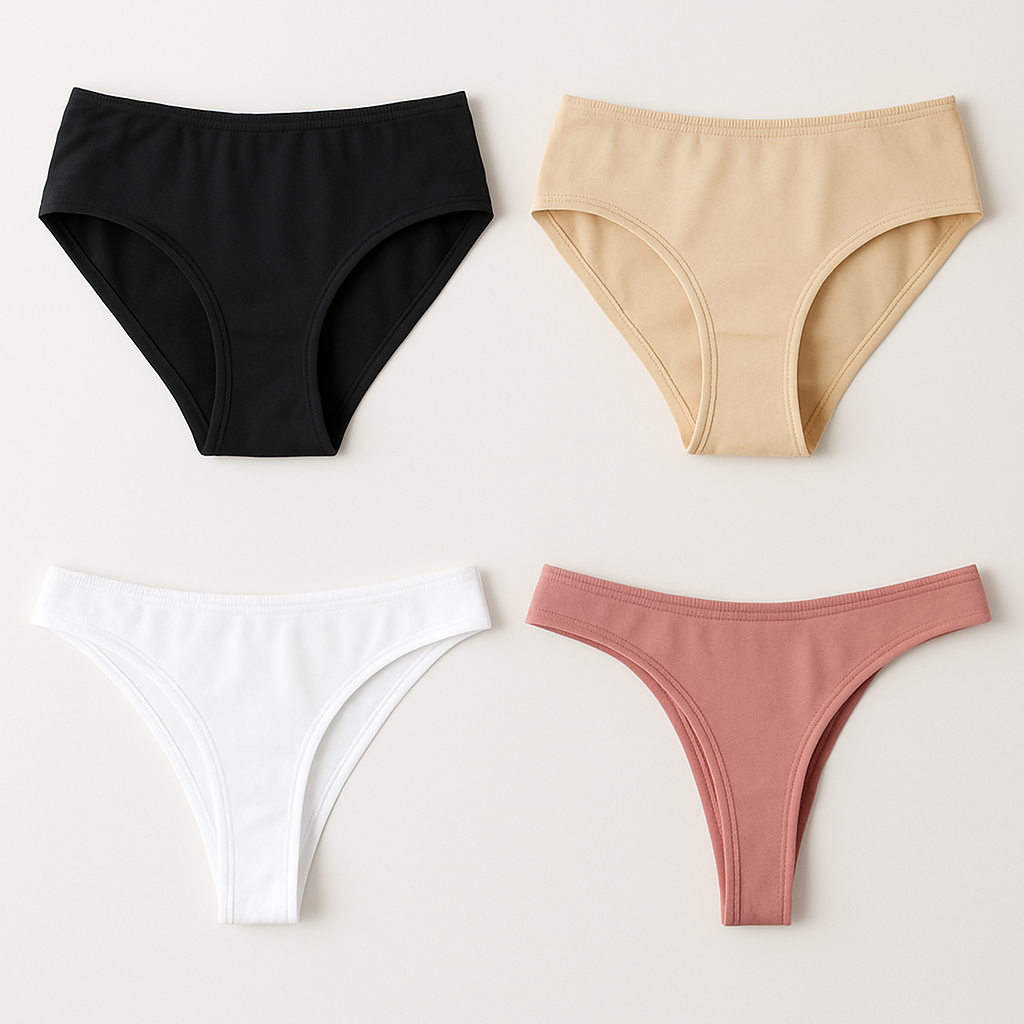Below is a tiered analysis of women’s underwear preferences that groups over 100 countries based on a synthesis of available market data, cultural norms, climate, and economic indicators.
By and large, briefs and brief-like underwear styles are over 70% of the global women’s underwear markets, with thongs being more of a niche product.
But it varies by country.
The placement of each country is an estimation based on these factors.
Table of Contents
Key Influencing Factors
- Cultural & Religious Norms: Social conservatism and traditional values often correlate with a preference for modesty and fuller-coverage clothing, making briefs the dominant style.
- Climate: Warmer climates and prominent beach cultures tend to foster a greater acceptance and preference for more revealing styles of clothing, including swimwear and underwear like thongs.
- Economic Development & Fashion Market: Developed economies with strong Western media influence and high disposable income typically have diverse markets where both practicality (briefs) and fashion trends (thongs for seamless looks) coexist and hold significant shares.
- Media and Social Trends: The prevalence of social media, celebrity culture, and specific trends (like the Y2K revival) can significantly impact the popularity of certain styles among younger demographics.
Tier 1: Briefs and Full-Coverage Styles are Dominant
In these countries, briefs, boy shorts, and other full-coverage styles constitute the vast majority of the market. This is driven by cultural norms emphasizing modesty, a focus on practicality and comfort, or a combination of these factors. Thongs are a niche product, often difficult to find outside of specialized stores in major metropolitan areas.
- East Asia: Japan, China, South Korea, Taiwan, Mongolia
- South & Southeast Asia: India, Pakistan, Bangladesh, Indonesia, Malaysia, Philippines, Vietnam, Thailand, Sri Lanka, Nepal, Bhutan
- Middle East & North Africa: Saudi Arabia, Iran, Egypt, United Arab Emirates, Qatar, Kuwait, Jordan, Lebanon, Oman, Morocco, Algeria, Tunisia, Iraq, Syria
- Eastern Europe & Eurasia: Russia, Poland, Hungary, Romania, Ukraine, Belarus, Kazakhstan, Uzbekistan, Czech Republic, Slovakia, Bulgaria
- Sub-Saharan Africa: Nigeria, Ethiopia, South Africa, Kenya, Ghana, Tanzania, Uganda, Democratic Republic of Congo, Angola, Mozambique, Ivory Coast, Cameroon
Tier 2: Briefs are Preferred; Thongs Have a Significant Market
These countries are characterized by a mainstream preference for the comfort and practicality of briefs and bikini styles for daily wear. However, a strong and established fashion market, significant media influence, and a focus on aesthetics (e.g., avoiding visible panty lines) ensure that thongs hold a substantial and important market share.
- North America: United States, Canada
- Northern & Western Europe: United Kingdom, Germany, Ireland, Netherlands, Belgium, Austria, Switzerland
- Oceania: Australia, New Zealand
- The Nordics: Sweden, Norway, Denmark, Finland, Iceland
Tier 3: Highly Balanced & Diverse Markets
In these nations, the choice between briefs and thongs is less a matter of dominance and more about occasion, personal style, and balancing comfort with aesthetic. There is a strong cultural appreciation for fashion and sensuality, making both styles mainstream staples in a woman’s wardrobe. The “Brazilian cut” or “cheeky” style is also very popular here as a hybrid option.
- Southern Europe: Italy, Spain, Portugal, Greece
- Western Europe (Fashion-Forward): France
- Latin America (Moderate Climate/European Influence): Mexico, Argentina, Chile, Peru, Costa Rica
- Other: Turkey, Israel
Tier 4: Thongs and Skimpier Styles are Most Relatively Preferred
While all styles are available, the cultural center of gravity in these countries leans towards more revealing underwear. This is heavily influenced by a hot climate, a prominent beach culture that celebrates the body, and media that portrays skimpier styles as the norm and a symbol of confidence. The “fio dental” (dental floss) is a mainstream concept here.
- South America (Tropical & Beach-Centric): Brazil, Colombia, Venezuela, Uruguay, Paraguay, Ecuador, Panama, Bolivia
Related: Underwear Preferences from Men & Women


